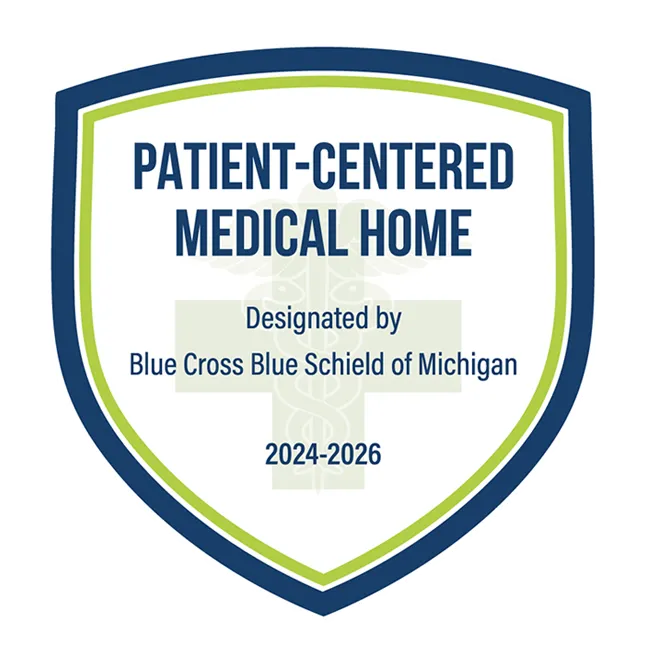


Neck pain is often blamed on poor posture, long workdays, or strained muscles, but infections can be an equally common, and easily overlooked cause. When your body detects bacteria or viruses, the lymph nodes in your neck spring into action, swelling as they filter out harmful germs. This immune response can create noticeable pressure, stiffness, or tenderness along the neck and jawline.
Find out how infections and swollen lymph nodes can trigger neck pain, and when you should get it checked.
Lymph nodes are small, bean-shaped glands located throughout the body, with clusters commonly found along the jawline, sides of the neck, underarms, and groin. These tiny filters are part of the lymphatic system, one of your body’s main lines of immune defense. Their job is to trap and destroy bacteria, viruses, and other harmful particles.
When an infection develops, such as in the throat, ears, or sinuses, the nearby lymph nodes become more active. They produce extra white blood cells, increase blood flow, and work harder to break down the invading germs. This immune activity causes them to swell.
When swelling occurs in the neck, it can put pressure on surrounding muscles and tissues, leading to soreness, stiffness, or a tender “bruised” feeling when you move your head. This is why inflamed lymph nodes often show up as noticeable neck pain.
A variety of infections can activate the lymph nodes around the neck and jaw. Some of the most common include:
Throat Infections: Conditions like strep throat, tonsillitis, and viral sore throats often cause lymph nodes to swell. Because these infections are located so close to the cervical (neck) lymph nodes, swelling and pain are especially common.
Ear and Sinus Infections: When your ears or sinuses are inflamed, drainage pathways can get blocked. The pressure from trapped mucus and fluid can radiate into the neck and jaw area. Your lymph nodes also ramp up their defense, adding more swelling to the mix.
Dental or Gum Infections: Tooth abscesses, gum disease, or severe cavities can trigger lymph node swelling under the jaw and down the side of the neck. Even mild dental infections can cause tender, painful nodes.
Viral Illnesses (Cold, Flu, Mono, etc.): Most viral infections cause temporary lymph node swelling. The pain usually improves once the fever and congestion settle down.
In most cases, the neck pain gradually improves as the fever, congestion, and other symptoms begin to resolve and the infection clears.
The link between swollen nodes and neck pain is more mechanical than most people think. When lymph nodes enlarge, they press on nearby muscles, nerves, and soft tissues. This creates discomfort that may feel:
Like a dull ache on one or both sides of the neck
Tenderness when turning the head
Soreness along the jawline or beneath the ears
A feeling of tightness or fullness in the neck
This swelling is typically a normal immune response, not a sign of anything dangerous. But persistent or severe swelling should be checked out.
Not every stiff or painful neck points to infection. Here are some non-infectious causes to keep in mind:
Muscle strain from screen time or poor posture
Sleeping with inadequate support
Sports injuries, falls, or whiplash
Arthritis or degenerative disc problems
This wider context helps you better differentiate between something structural and something infection-related.
While swollen lymph nodes are usually harmless, certain symptoms are red flags that need medical attention:
Swelling that lasts longer than two weeks
Fever, extreme fatigue, or unexplained weight loss
Pain that worsens instead of improving
Trouble swallowing or breathing
A lump that keeps growing or feels very hard
Delayed treatment can allow infections to spread, so it’s better to get checked sooner than later.
A healthcare provider can pinpoint the root cause of your neck pain and swollen lymph nodes. They may:
Perform a physical exam and discuss your symptoms
Check your throat, ears, and sinuses for infection
Order blood tests, throat swabs, or imaging if needed
Provide treatment such as:
Antibiotics for bacterial infections
Antivirals if applicable
Pain relievers and anti-inflammatories
Warm compress or hydration recommendations
Getting the right diagnosis helps you heal faster and avoid complications.
Swollen lymph nodes in the neck are often just a sign that your immune system is doing its job, but neck pain that lingers or intensifies shouldn’t be ignored. Paying attention to your symptoms can help you catch infections early and avoid complications. If something doesn’t feel right, trust that instinct, getting checked by a healthcare provider can bring clarity, relief, and the right treatment to help you feel better faster.
If your neck pain isn’t improving or swollen lymph nodes have you concerned, let the experts at MI Express Urgent Care take a closer look. We offer quick evaluations, targeted treatment, and same-day support so you can get relief without the long wait.
Schedule your appointment today and get clarity and care in one visit.
Swollen lymph nodes typically improve within one to two weeks as the infection clears. If swelling lasts longer or continues to grow, a medical evaluation is recommended.
Allergies and sinus infections can trigger inflammation and drainage issues, which may activate nearby lymph nodes and cause temporary swelling, tenderness, or neck discomfort.
Seek care if the node is hard, rapidly growing, very painful, persists over two weeks, or comes with fever, night sweats, fatigue, or unexplained weight loss.
Some swollen lymph nodes cause noticeable soreness, while others enlarge quietly without pain. Tenderness depends on the level of inflammation and the infection triggering the response.
Warm compresses, rest, hydration, gentle stretching, and over-the-counter pain relievers can ease discomfort. If swelling persists or worsens, a healthcare provider should evaluate it.




